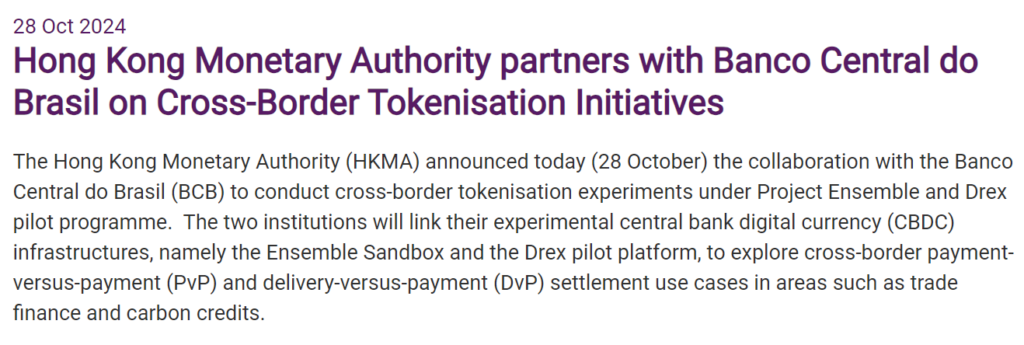- Hong Kong’s regulations foster financial innovation while maintaining transparency and security for crypto investors.
- Cyberport Web3 hub added over 120 blockchain firms in the past 17 months alone.
- The government encourages crypto growth through tax incentives and stablecoin policies supporting local financial stability.
Hong Kong has quickly become a leading destination for cryptocurrency innovation, standing alongside financial hubs like Singapore and the United Arab Emirates. Ivan Ivanov, CEO of WOW Summit, highlighted the city’s role as a bridge between traditional finance and emerging blockchain technologies. Ivanov explained that Hong Kong’s unique status as a special economic zone gives it flexibility to experiment with financial innovation, benefiting early-stage startups and institutional investors alike.
Ivanov also pointed to Hong Kong’s regulatory clarity as a key advantage. Stablecoin issuers, for example, are required to hold licenses and keep their reserves in local banks, helping to build trust in the digital asset market. This approach ensures transparency while giving investors confidence in the system’s security.
Hong Kong’s Financial Services and Treasury Bureau (FSTB) has also introduced guidelines to regulate artificial intelligence use in financial applications. These measures, announced in October 2024, aim to manage risks while supporting AI adoption in banking and digital finance.
Innovation Grows Through Blockchain Adoption
Hong Kong’s state-backed Cyberport Web3 hub is a centerpiece of its digital asset strategy. This business network, which promotes blockchain and fintech development, now includes over 270 firms. More than 120 of those joined within the last 17 months, signaling rapid adoption of blockchain-based solutions across the region.
Hong Kong has also been active in international collaborations. The Hong Kong Monetary Authority (HKMA) launched Project Ensemble in October 2024, working with central banks in Brazil and Thailand. The initiative explores using tokenized settlements for cross-border transactions, which could improve efficiency in global financial systems.
The private sector continues to grow alongside government initiatives. In November 2024, ZA Bank, the largest digital bank in Hong Kong, launched retail cryptocurrency trading for its customers. This move reflects growing institutional support for crypto adoption in the region.

Attracting Institutional Investors With Incentives
Hong Kong’s policies are designed to attract both individual and institutional investors. Government proposals to exempt institutional crypto investors from capital gains taxes demonstrate efforts to boost long-term growth in digital assets. These measures align with broader strategies to position the city as a global financial hub for blockchain technologies.
The combination of clear regulations, financial incentives, and public-private partnerships has created a unique environment for crypto innovation in Hong Kong. This approach not only supports emerging technologies but also ensures investor confidence in the region’s growing digital economy.














